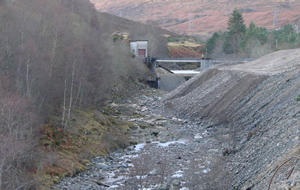 Our research focuses on the influence of impacts on rivers and their surroundings on ecosystem structure and function, and how these impacts can be mitigated by adopting appropriate management strategies.
Our research focuses on the influence of impacts on rivers and their surroundings on ecosystem structure and function, and how these impacts can be mitigated by adopting appropriate management strategies.
The types of impact we study include rivers that have been straightened and channelised to ensure drainage of surrounding agricultural areas, to facilitate navigation and as flood protection. These reaches are often continuously maintained by dredging of bottom sediments and removal of woody debris and weeds.
This results in:
- A loss of habitats and ecosystem complexity.
- Disconnection from the interaction with the river valley.
- Reduced ecosystem capacity to resist other pressures such as organic pollution, because surface area and re-oxidation are decreased.
- An overall severe reduction in species diversity and density of important fish species due to habitat degradation.
- This research is undertaken at all relevant spatial and temporal scales with specific emphasis on riparian zones
- We study ecosystem processes and structure with a particular emphasis on hydromorphology, biodiversity and climate change.
- We strive to test and develop strong links between the environmental status of rivers and our ecological measurements.
- We are comparing and contrasting our different approaches, since some measurements may respond better or faster than others for specific natural and anthropogenic pressures.
- It is also crucial to establish the relative impacts of different anthropogenic pressures both independently and in interaction with natural processes.
Find out more about our work on:
- Hydromorphology
- Ecological assessment
- Species distribution and diversity
- Ecosystem processes and food webs
|
Updated: 23 Jan 2024, Content by: MC
|

